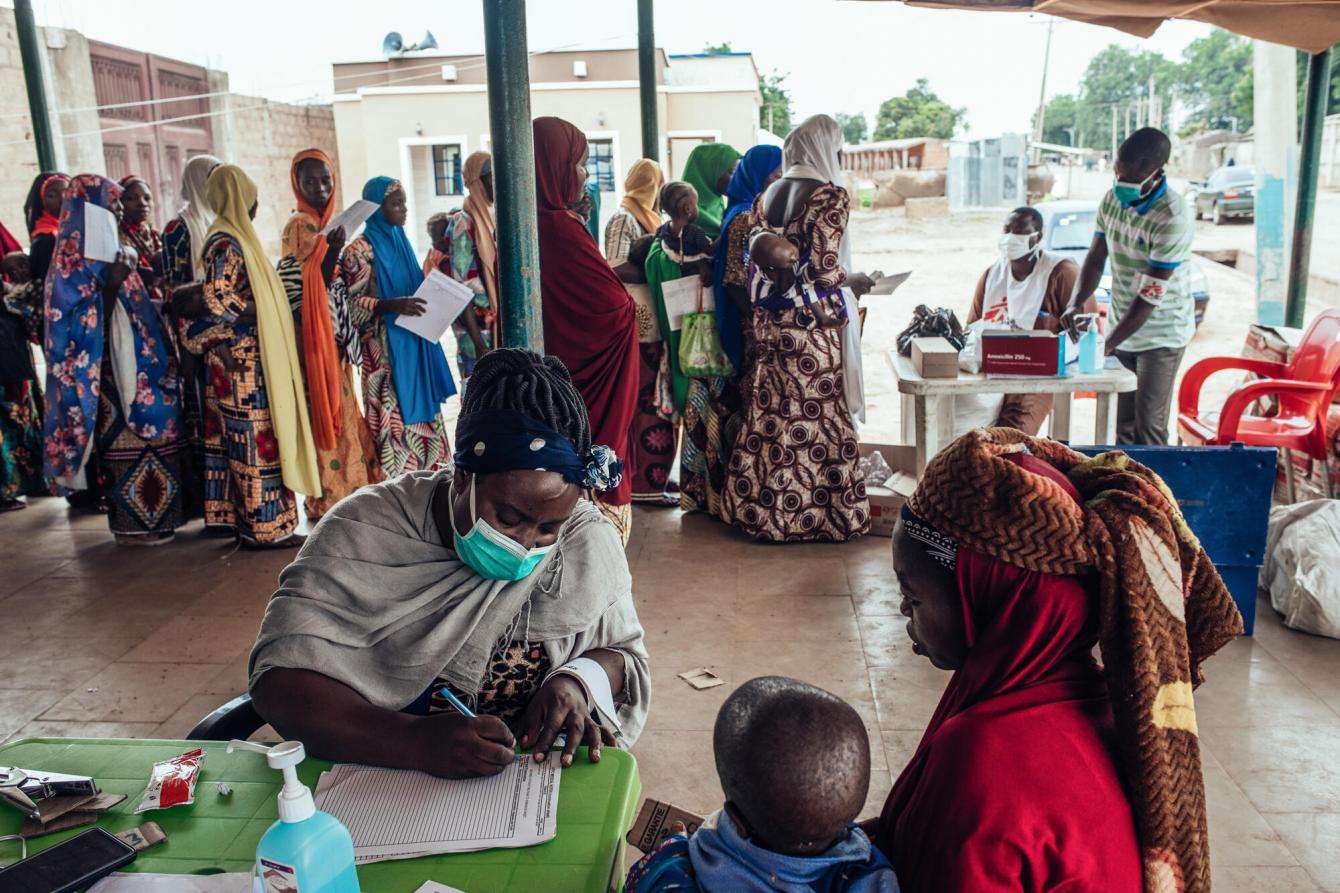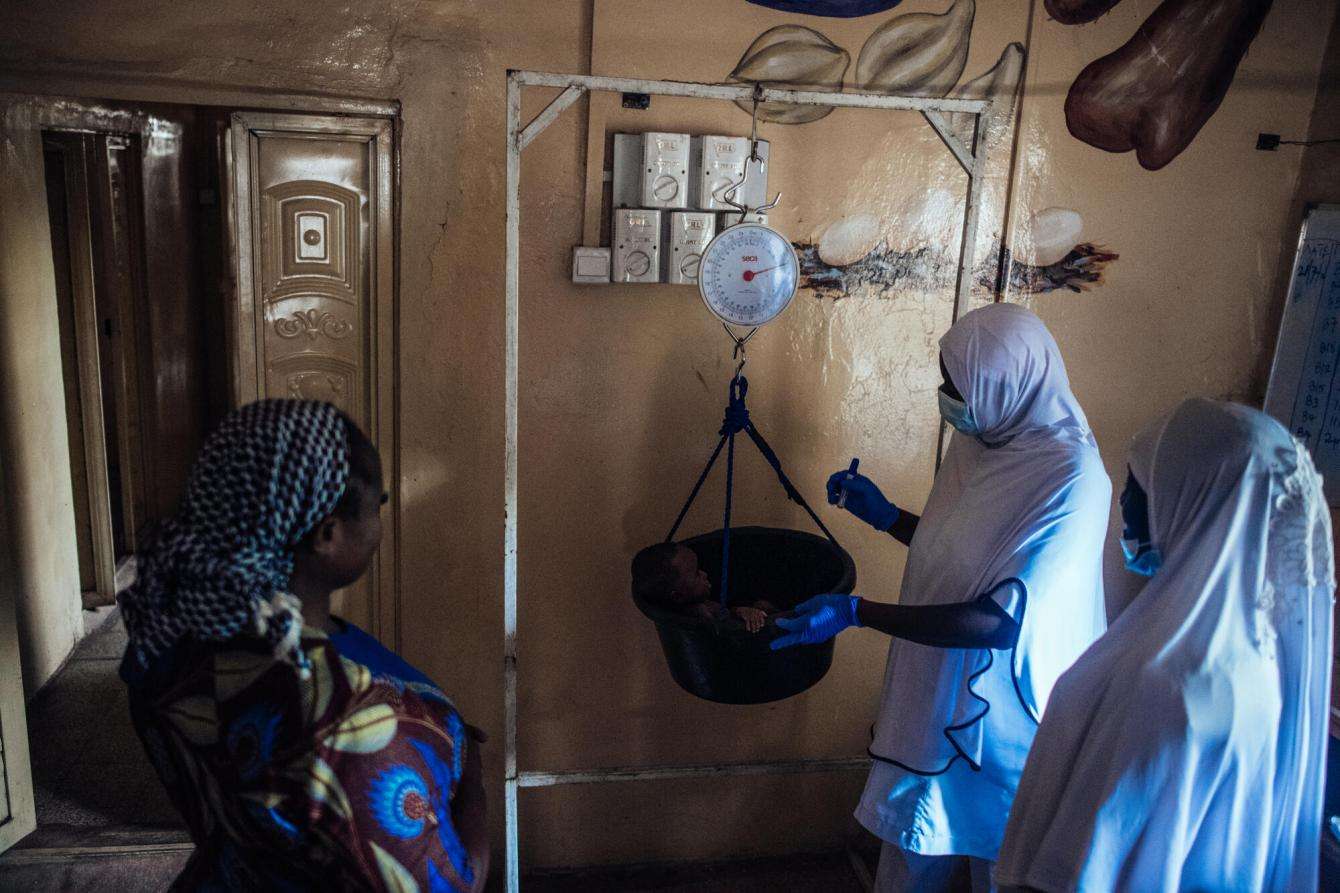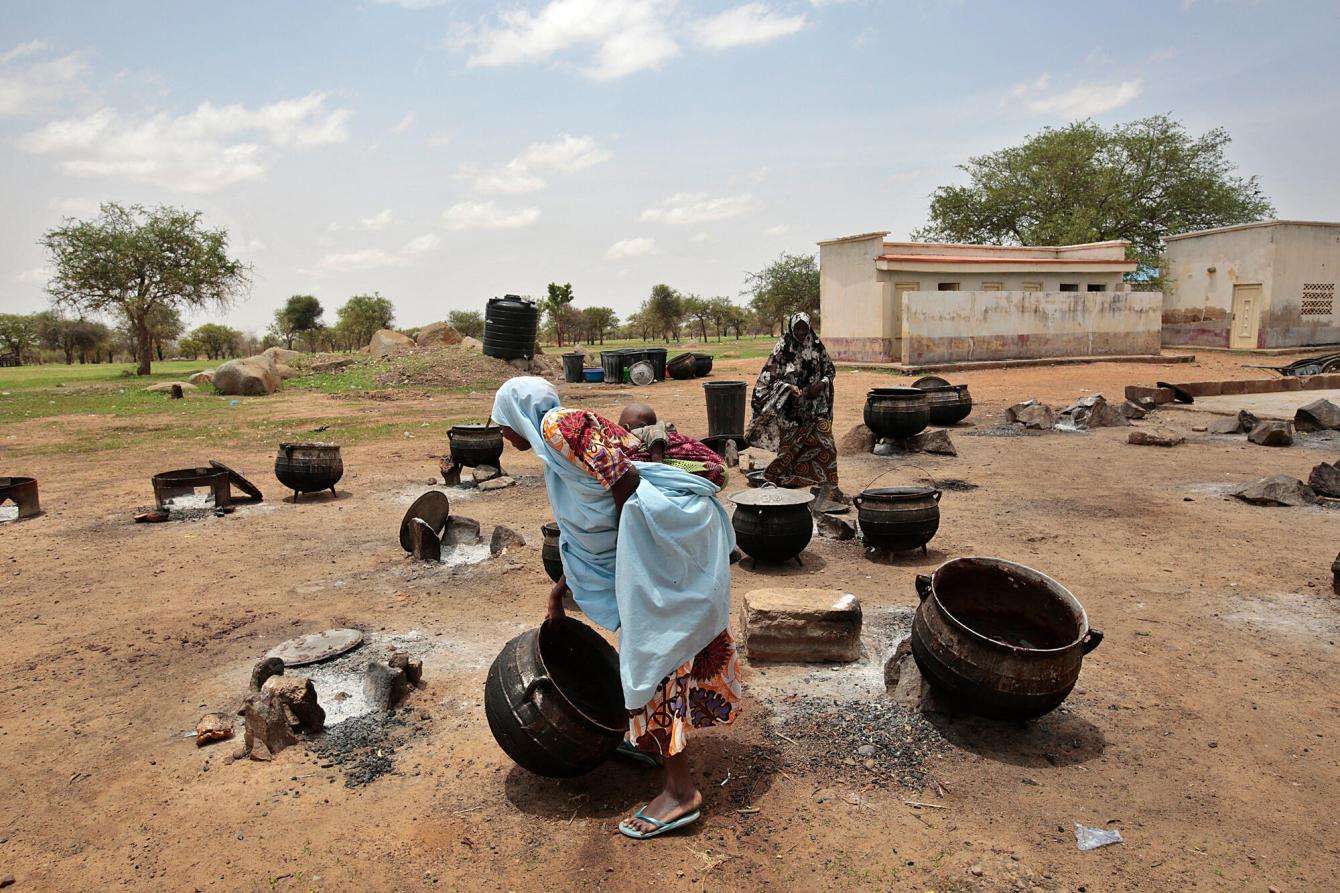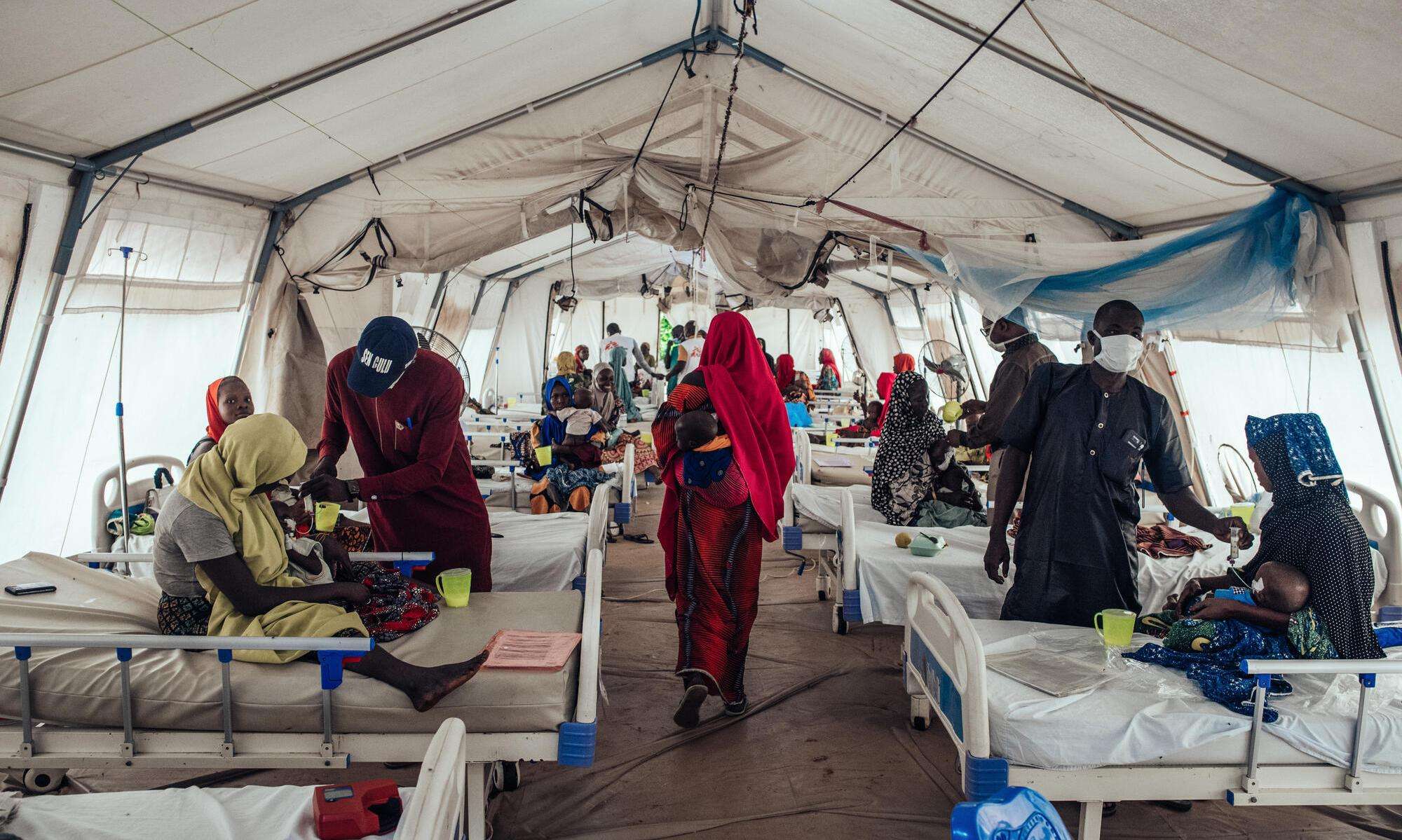NEW YORK/ABUJA, DECEMBER 5, 2022—The malnutrition crisis in northwest Nigeria remains at catastrophic levels as humanitarian actors continue to overlook this region that’s being hit by escalating violence, displacement, loss of livelihoods, and soaring food prices. Doctors Without Borders/Médecins Sans Frontières (MSF) is calling, once again, for the humanitarian community to immediately respond to the emergency needs of people in the region.

For months, MSF has been calling for northwest Nigeria to be included in the UN's humanitarian response plan in particular so actors that rely on UN funding can help provide aid to the region. However, to date, the plan prioritizes aid for people in the country’s northeast region.
MSF has expanded activities and treated more than 140,000 children for acute malnutrition in northwestern Zamfara, Katsina, Sokoto, Kebbi, and Kano states this year. In Zamfara state, the admission of children with severe acute malnutrition to MSF’s ambulatory therapeutic feeding centers is 39 percent higher than last year. In Katsina state, 80,000 children have been treated for severe acute malnutrition.

Dr. Simba Tirima, MSF country representative in Nigeria, said today of the situation:
“The past few months have been incredibly difficult for the people of northwest Nigeria. Our teams have seen unprecedented high numbers of malnourished children in the medical facilities where we work in partnership with the ministry of health.
"We see children dying on the way to our clinics. We see children whose medical condition is so severe that we can’t do anything to save them. Escalating violence, displacement, soaring food prices, epidemics, and climate change are the factors triggering this alarming health and malnutrition crisis."

“The scale of this crisis demands national and international mobilization for an adequate humanitarian response. We call on other organizations to join in and support the authorities in meeting the most urgent needs of the affected communities. The northwest continues to be largely ignored in the overall UN-led humanitarian response and plans in Nigeria, which focus on the plight of the northeast of the country.
“Ensuring greater access to lifesaving nutritional treatment for the thousands of people who need it now and during the next lean season is essential if we are to avoid 2023 becoming another devastating year for children in northwest Nigeria.”


